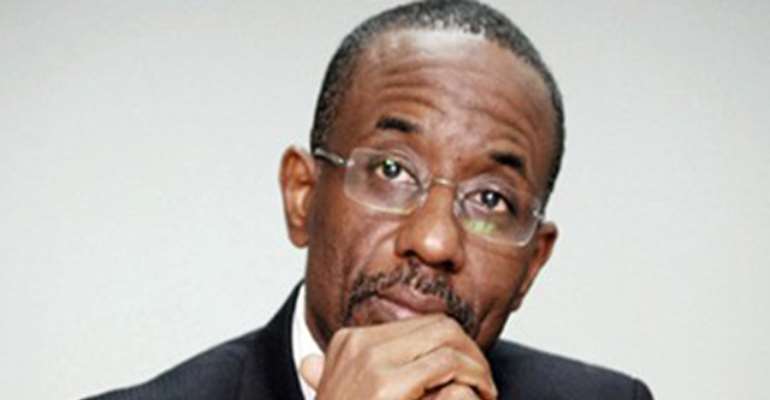Sanusi wants his successor appointed before April

Governor, Central Bank of Nigeria (CBN), Mallam Sanusi Lamido Sanusi, said he would like President Goodluck Jonathan to announce his successor at least two months before the end of his tenure.
According to him, that is the standard practice in developed economies like the United States. Sanusi, whose tenure is expected to end in June 2014, cited the United States where a successor to Ben Bernanke was announced a few months to the end of the Federal Reserve Chairman's tenure.
The governor spoke in Lagos at the weekend at the 5th anniversary celebration, graduation and induction of the Women in Successful Careers (WISCAR).
Sanusi, while responding to questions from participants, said:'I think the issue of Bernanke and Yellen, if you remember, it started about two months ago and Bernanke's tenure ends in December. Tomorrow (December 1), it will be six months to the end of my term, probably a bit early for the government to start talking about the next person. 'But I do hope that about two or three months before then, there should be some announcement. Central bank governors don't comment on who they think their successor should be. It is not our business to do that; it is the president's decision.
'But if I have an input at all, I will try to encourage that we announce a successor two to three months before the end of my tenure so that everybody would know who that person is, what his or her views are, and so people can prepare accordingly.
Sanusi, however, would not be drawn into speculations as to who would be his successor, saying simply that some names had already been published in newspapers and expected more to be published later.
Speaking on the broad issues of his tenure, the governor said that macroeconomic management is essentially a delicate interplay of critical dynamics.
He said, 'If I print enough money today, interest rate will come down to three per cent. But what will the rate of inflation be? What would the exchange rate be?
'For Nigerians who have no social safety net, bringing down inflation affects their lives. They don't want to go to the market with their small salaries and find out that they cannot feed their families.
'I have to keep inflation down for these people. I have to keep a stable exchange rate for you to pay the school fees of your children, I have to build up the reserves of this country, so that if there is an oil price shock, the country can continue going. The high interest rate is the price you pay for this.
'Every time we just focus on interest rates, we miss the point. The point is that we are not doing development. It is the role of the state to provide electricity; it is the role of the state to provide security and to provide roads.'
